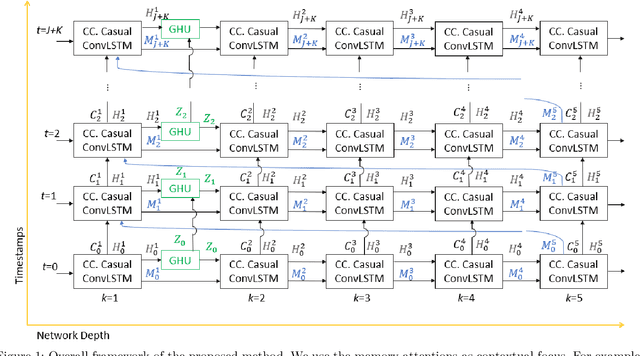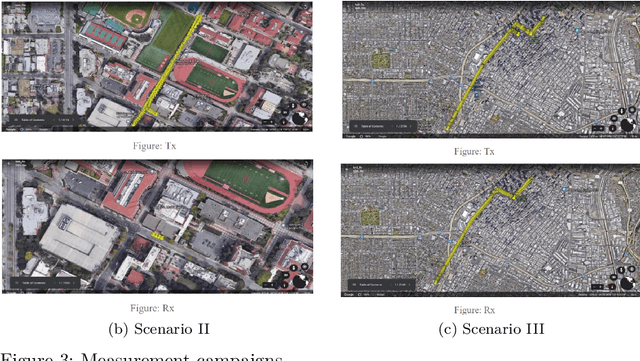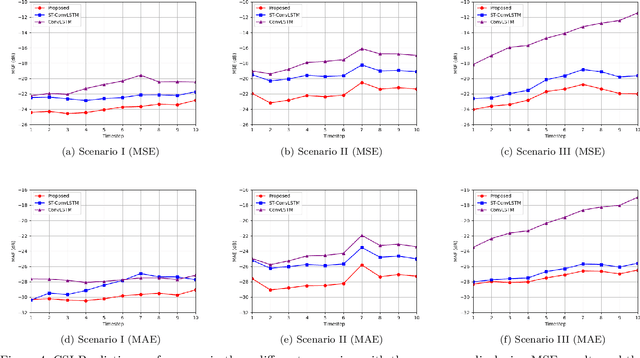Michael Neuman
Context-Conditioned Spatio-Temporal Predictive Learning for Reliable V2V Channel Prediction
Sep 16, 2024



Abstract:Achieving reliable multidimensional Vehicle-to-Vehicle (V2V) channel state information (CSI) prediction is both challenging and crucial for optimizing downstream tasks that depend on instantaneous CSI. This work extends traditional prediction approaches by focusing on four-dimensional (4D) CSI, which includes predictions over time, bandwidth, and antenna (TX and RX) space. Such a comprehensive framework is essential for addressing the dynamic nature of mobility environments within intelligent transportation systems, necessitating the capture of both temporal and spatial dependencies across diverse domains. To address this complexity, we propose a novel context-conditioned spatiotemporal predictive learning method. This method leverages causal convolutional long short-term memory (CA-ConvLSTM) to effectively capture dependencies within 4D CSI data, and incorporates context-conditioned attention mechanisms to enhance the efficiency of spatiotemporal memory updates. Additionally, we introduce an adaptive meta-learning scheme tailored for recurrent networks to mitigate the issue of accumulative prediction errors. We validate the proposed method through empirical studies conducted across three different geometric configurations and mobility scenarios. Our results demonstrate that the proposed approach outperforms existing state-of-the-art predictive models, achieving superior performance across various geometries. Moreover, we show that the meta-learning framework significantly enhances the performance of recurrent-based predictive models in highly challenging cross-geometry settings, thus highlighting its robustness and adaptability.
 Add to Chrome
Add to Chrome Add to Firefox
Add to Firefox Add to Edge
Add to Edge